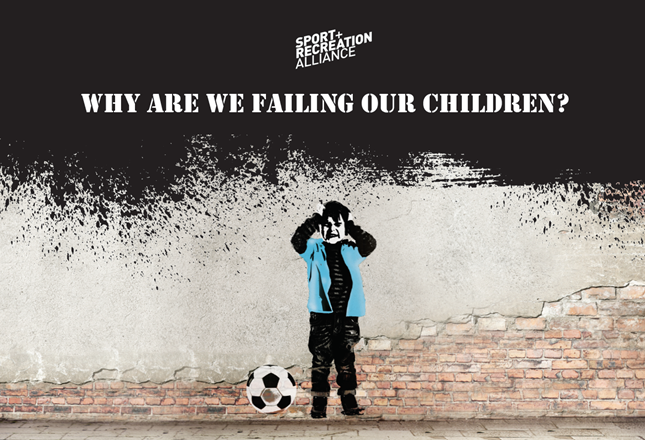
60% of the nation don’t think we do enough to get children active according to new research by the Sport and Recreation Alliance.
With 80% of girls and 77% of boys failing to meet the national recommended level of activity, the public have voiced their concern about the health and well-being of our children and young people.
Physical activity has been shown to improve problems relating to poor health, mental well-being and loneliness; all areas of concern for parents responding to the survey.
Figures from Public Health England show that 93% of children like to be active, indicating an overwhelming desire for more opportunities and better access, which must now be delivered.
There is also a demand for the sport, education and youth sectors to work together and improve activity levels, with 72% agreeing a joined-up approach is required for progress.
The Alliance has today launched a campaign around the fundamental right of all children to be active.
The #RightToBeActive campaign asks those across society, including parents, to join the call for government to embed the fundamental right of all children to be active in policy, regulations and legislation.
Government must consider expenditure on children and young people a vital long-term investment for the development of this country’s future infrastructure and economy.
If change is to be created, there must be a commitment to a long-term strategy to make sure that no child is left behind.
Emma Boggis, CEO of the Sport and Recreation Alliance, agrees that change is needed, saying: “Despite considerable investment, activity levels among children and young people have stagnated over the last four decades.
“There have been many great initiatives from the sector during this time but there must be stronger collaboration between government, sport, recreation, education and parents if we are to get children and young people active.
“Collectively, we must deliver these improvements and we have to deal with the fact that the sector is not working and is failing to deliver meaningful change.”
An example of how joined-up thinking can achieve positive results is Rackets Cubed, an initiative endorsed by former British number one tennis star, Tim Henman.
It combines physical activity with education; as youngsters learn maths and the benefits of healthy nutrition. The project targets disadvantaged communities and often provides the only ‘healthy’ meal the children receive that day or week.
Henman, an 11-time ATP tour champion said: “It is absolutely right that every child has the opportunity to be active, healthy and happy.
“Projects like Rackets Cubed show the value of collaborative working and in doing so create a tangible, positive impact for children who need the most support.”
Boggis added: “This is a fantastic illustration of how we can create a better environment for our children and young people to be active.
“Rackets Cubed is an example of a sustainable model that delivers a real impact; using pre-existing, under-utilised sporting infrastructure which is often found on the doorsteps of communities we should try to reach.”
The fundamental right of a child to be active is at the centre of a series of wider calls for the Sport and Recreation Alliance, government and sector to collectively deliver upon.
This afternoon, the Chancellor delivered her Budget speech to Parliament, outlining decisions on tax and spending.
Read moreAhead of the Chancellor’s Budget statement on 26 November, we take a look a look at the key areas to be aware of and the work the Alliance has been doing lobbying on behalf of members.
Read moreGovernment has today formally launched a consultation on reforming the role of statutory consultees in the planning system. The consultation runs for eight weeks, closing on 13 January 2026.
Read moreJoining the Sport and Recreation Alliance is pretty simple, but worthwhile!
Register now